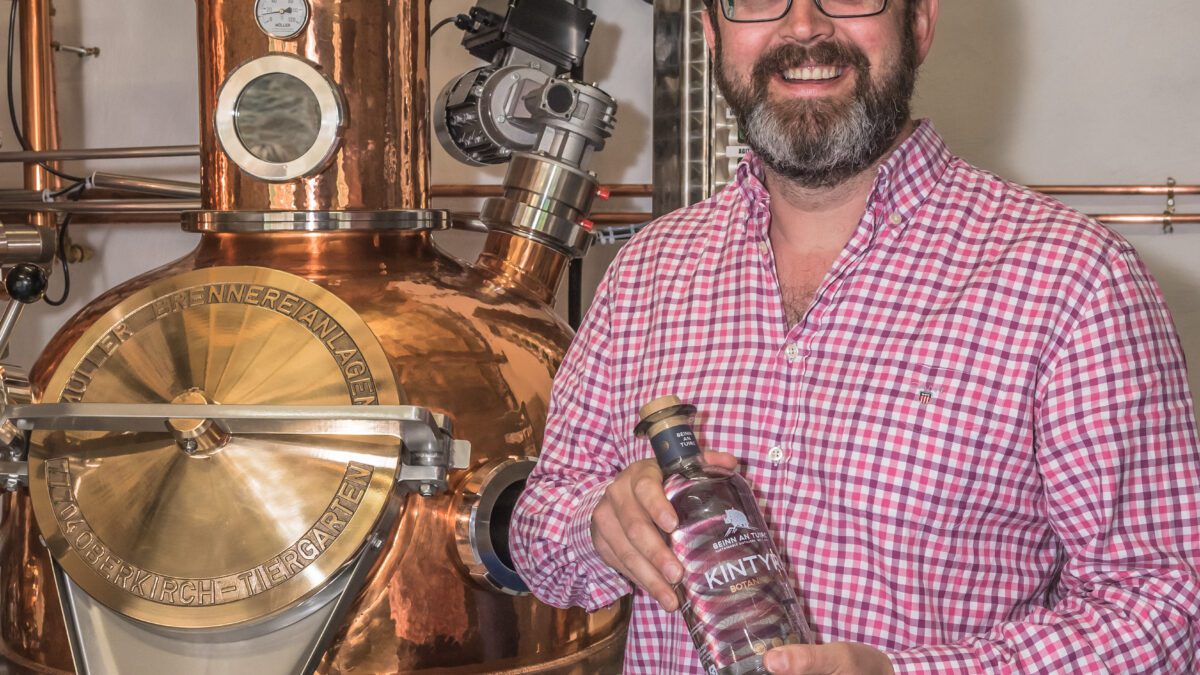In the heart of Torrisdale Castle estate in Kintyre is one of Scotland’s biggest success stories in sustainable distilling: not for whisky but gin.
Beinn An Tuirc, which takes its name from ‘the hill of the wild boar’, currently produces around 20,000 bottles of gin and gin-related products every year.
“We have also started producing vodka and also have a version of our own Calvados-style spirit in production,” says founder and owner Niall Macalister Hall.
“This uses our own apples grown on the estate, fermented then distilled. We have a few casks ageing slowly here. In addition, we are looking at small batches of our own Kintyre Rum and aim to one day move into small-scale whisky production. We will always be a relatively small player in the market but we do aim to expand significantly in the next few years.”
Niall and his team started making gin seven years ago and sustainability was always at the heart of their ethos. “We saw it as a long-term commitment and also spotted that the drinks industry would need to move towards net zero, which it now is. We power our still from our own hydro-electric scheme and still export around 80 per cent of electricity produced. We have installed solar panels which power our cafe by day – when the sun shines!
“We have planted thousands of trees and created three new orchards to grow apples for our new apple brandy. We also grow a lot of our own food for our cafe in our walled garden. “
By focusing so strongly on sustainability, Beinn An Tuirc is now classed as net zero and sequesters around 1,200 tonnes of carbon over and above what it emits every year. The company has already won the Highlands and Islands Food and Drink Award in 2022 for Sustainability and the 2020 Scottish Gin Award for Sustainability.
Niall notes: “Even before we started the distillery, on the estate here at Torrisdale it was something we always championed. It leaves a good legacy for the next generation, and with climate change it’s important to try to do our bit for the environment.
“Other businesses are now slowly realising it’s also good for business. Some jump on the ‘green bandwagon’ and, quite frankly, it’s all soundbites to make them look good. But others are really pushing the narrative and that is good to see.”
Despite the success of Beinn An Tuirc, Niall admits energy requirements remain the biggest issue for the distillery industry as a whole in its transition to net zero.
“We are keen to move into whisky but we are also keen not to use gas or fossil fuels,” he says. “We are currently looking at wood-fired stills for example. We won’t compromise on this. Research into alternative sources is in its infancy, however, some are looking at trialling hydrogen, and more support needs to be put into these areas.”



